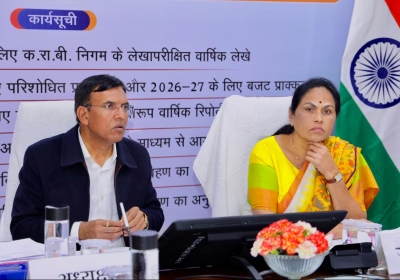
Ugandan man’s 102 kids spark feeding challenge
Ugandan man with 12 wives and 102 kids struggles to feed massive clan
Musa Hasahya Kasera, a 70-year-old man from Mukiza village in eastern Uganda, is known for having an extraordinary family. He has 12 wives, 102 children, and 578 grandchildren, making his family one of the largest in the world. While his family is large and filled with many members, the challenges of feeding and caring for such a big group are overwhelming.
His story went viral on social media after being shared widely, with some calling him “The Person Who Produced the Most Children in the World.” However, his life is far from simple, and it’s clear that his family, despite their size, faces serious struggles.
Starting his family
Musa’s journey of expanding his family started when he married his first wife at the age of 17 in 1972. Over the years, he continued marrying more women, and his family grew rapidly. As a cattle trader and butcher, Musa was initially well-known in his community, and many villagers offered their daughters to him in marriage.
Polygamy, which means having more than one wife, is legal in Uganda according to some religious traditions. However, it was not until 1995 that child marriage was officially banned in the country. His first child, Sandra Nabwire, was born just a year after his marriage. Today, his children range from 10 to 50 years old, and his youngest wife, who is 35 years old, has added even more to his already large family.
While Musa’s family is vast, it has brought a series of problems. He has admitted that remembering all the names of his children is difficult, and he can only recall the names of his first and last-born. His wives help him keep track of the family, but even they struggle with such a large number of children. The family members live in mud huts with grass-thatched roofs, and his home is in poor condition.
Despite owning two acres of land, which once seemed enough to feed his family, it is now not sufficient to provide for all their needs. Musa’s family is often faced with hunger, and food is barely enough for everyone. They have to make do with limited resources, and some children have to work for neighbors or fetch water and firewood from long distances just to survive.
The hardship of providing for a large family
Musa’s third wife, Zabina, shared that food is scarce, and they are forced to feed their children only once a day, or sometimes twice if they are lucky. The growing family’s needs have put a strain on their finances and living conditions. Musa admitted that having such a large family has brought problems that he did not foresee. Two of his wives left him because they could no longer bear the hardships of living in such challenging conditions.
Musa’s health is also declining with age, making it more difficult for him to support such a large family. While many of his children are grown, the younger ones still depend on him and his wives for care and food. Some of the family members, especially the older children, have started to help manage the family’s needs, with one of his sons, Shaban Magino, a 30-year-old teacher, assisting with education and other responsibilities.
With such a large family, managing conflicts and maintaining peace can be a challenge. To handle this, Musa holds regular family meetings where everyone gathers to resolve any issues that arise. Local officials in the village of Bugisa, where Musa lives, have praised him for his ability to keep order in his family despite the difficulties. They also note that Musa has raised his children well, with no major issues like theft or fighting within the family.
ALSO READ: South Korean opposition postpones impeachment plan against acting President Han
ALSO READ: Ukraine drone strikes hit Moscow Buildings in bold 9/11-style attack
Musa insists that despite the hardships, all of his wives are happy with him, even though some of them have expressed dissatisfaction with the overcrowding and limited resources. Zabina, for example, revealed that she didn’t know Musa had other wives when she first married him. She said if she had known, she might not have agreed to marry him. But over time, Musa continued to marry more women, and the family grew to its current size.
Musa’s wives have had varying reactions to their living conditions. Despite the overcrowded and difficult environment, most of his wives remain in the homestead. However, a few have left to live in nearby towns due to the strain of living in close quarters. Some, like Zabina, feel disillusioned by the circumstances but have accepted their situation.
“I never knew he had other wives when I first married him,” said Zabina. “If I had, I might not have agreed to marry him. But when I came, he just kept bringing more wives, until he had 12.” This statement highlights the challenges and emotional strain that the wives experience in such a large family setup.
In recent years, Musa has realized the difficulty of managing such a large family. He has decided to stop expanding the family and has taken steps to prevent further births. Musa and his wives now use contraceptives to ensure that no more children are born. He acknowledges that having so many children was “irresponsible” and that he cannot afford to care for any more.
“I have learned my lesson,” Musa said. “I do not expect more children. I can’t look after any more.”
Musa’s life is a reminder of the difficulties of managing a large family, especially when resources are limited. His family continues to grow, but it is clear that the challenges of feeding and caring for so many people are immense. Despite these struggles, Musa remains a central figure in his family, and his story has sparked widespread discussions around the world.
Though the family continues to face hardships, Musa’s ability to keep his family together and manage their needs with limited resources is admirable. His decisions to limit further expansion show that he has learned from his past actions and is doing his best to ensure his family’s survival in the years to come.





